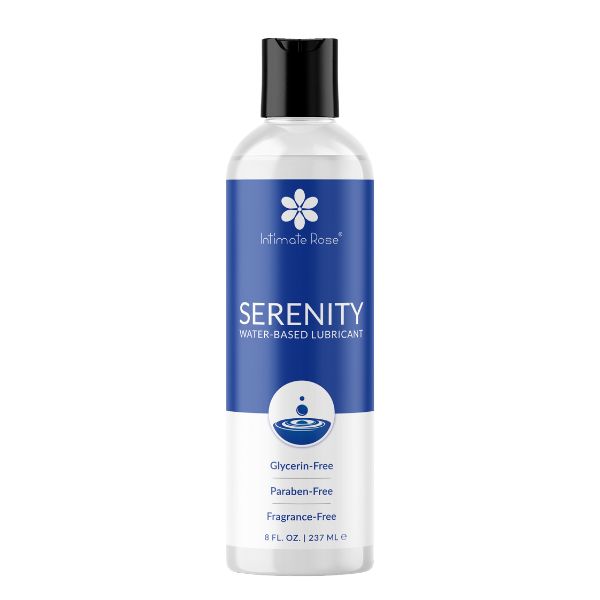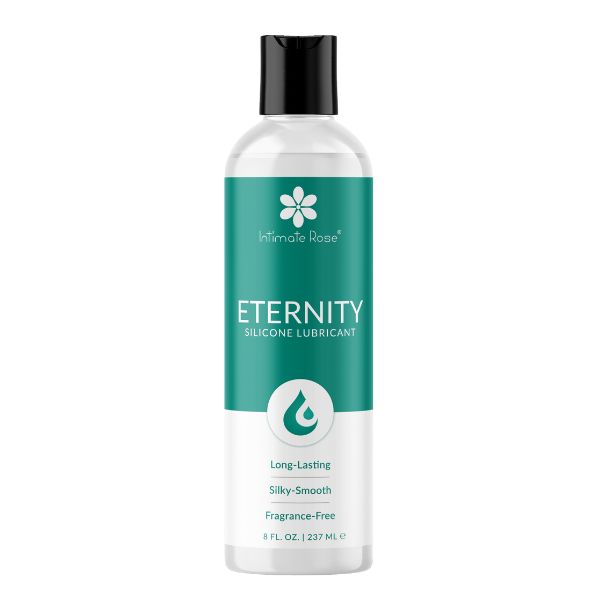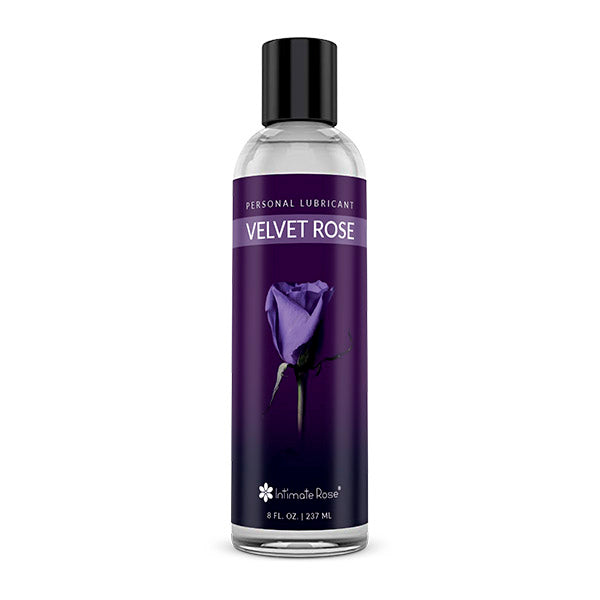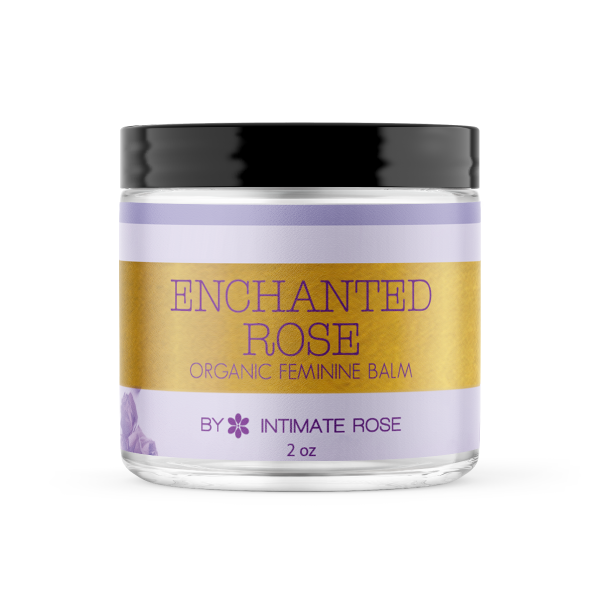Noticing hair loss while washing or brushing during menopause is common and is generally caused by changing hormones, genetics, stress, or a combination of all three. Although it does not hurt physically, hair loss impacts a woman’s self-esteem and can be one of the most devastating symptoms of menopause.
In this article, learn which hormones contribute to hair loss during menopause, how to keep hair healthy as you age, and how hair loss is treated once it occurs. We’ll also discuss a natural way of rebalancing your hormones and alleviating menopause symptoms without the risks of hormone therapy.
Understanding Perimenopause, Menopause, and Postmenopause
Perimenopause, which typically begins in the early to mid-40s, is triggered by decreasing female hormones (estrogen and progesterone) as the reproductive phase of life comes to an end. When the production of female hormones declines, androgens (male hormones like testosterone) drop too, but at a slower rate.
Even though perimenopause is a normal and inevitable part of life, the gradual decline in the production of these important hormones can also affect other body systems and cause what we know as menopause symptoms.
One of those such symptoms is Hair Loss.
Is Menopausal Hair Loss Common?
A 2022 study published by the journal of the North American Menopause Society revealed that just over 50% of otherwise healthy menopausal women experienced female pattern hair loss.
Hair Loss and Menopause: What Happens?
Although the decline in estrogen and progesterone during menopause is primarily designed to shut down the ovaries and the reproductive phase of life, lowered hormone levels can also impact other body systems, including the heart, bones, muscles, and hair health.
For instance, estrogen and progesterone are important hormones for healthy and thick hair growth. Women who have given birth will likely remember thicker hair during pregnancy (due to increased estrogen and progesterone) and increased hair shedding after birth (due to decreasing levels of the same hormones).
As these hormones decline during perimenopause, the hair growth cycle is generally affected too with hair follicles shrinking on the head and all over the body. Women’s hair can often become more brittle during this stage of life, and some women notice more hair loss in the shower or on their hairbrush.
While estrogen and progesterone are dropping, androgens (male hormones like testosterone) typically decrease more slowly and temporarily become the dominant hormone. This can result in hair loss on the scalp, and in some cases, hair growth on the face (hirsutism).
Other factors known to contribute to hair loss during perimenopause and/or menopause include medication for blood pressure and antidepressants, pre-existing skin conditions, thyroid issues, and synthetically produced hormone therapy (HT). The stress of menopause symptoms can also worsen hair loss.
Menopausal Hair Loss: What Does it Look Like?
An increased amount of shedding during washing or brushing is often the first sign of hair loss during perimenopause or menopause. Noticing a reduction in hair volume, wider parting lines, receding hair lines at the front or temples, and seeing the scalp more clearly through wet hair are common signs of menopausal hair loss.
Are There Different Types of Hair Loss During Menopause?
Menopausal hair loss can manifest differently for women who experience it. Some notice hair shedding or thinning during perimenopause while others recognize it only in postmenopause, and many women experience menopausal hair loss so mildly they hardly notice at all.
Menopausal hair loss is differentiated into two types:
Female Pattern Hair Loss (Androgenetic Alopecia)
Described as a gradual hair thinning on the top of the head and along the part line or the temples, this type of menopausal hair loss is typically caused by genetics and hormone changes. A hereditary shrinking of hair follicles during this time of life can lead to the growth of fine hair that provides little to no scalp coverage.
Although it is often hereditary, and the risk is increased if a female family member has experienced the same, this type of hair loss can also occur randomly.
Low estrogen levels during perimenopause and menopause can also maximize androgen influence, which contributes to hair loss on the scalp and temples. Some women who experience hair loss around the temples during menopause are prone to extra facial hair on the chin or upper lip.
When hair is lost due to female pattern hair loss, it does not grow back without medical treatment, however, it can be prevented if caught early. Women of menopausal age are therefore encouraged to speak with a menopause or hair expert as soon as they notice any hair loss on the scalp.
Telogen Effluvium
Telogen effluvium is described as temporary hair loss when the natural hair growth cycle is disrupted. Affecting the entire scalp, women initially notice large amounts of hair loss after washing or brushing.
Telogen effluvium commonly occurs due to hormone changes after childbirth or during menopause, while taking certain medications, or due to stress, extreme dieting, nutrient deficiencies, and skin problems on the scalp.
This type of hair loss usually regrows within 3-6 months without treatment. However, the sooner it is discussed with a menopause or hair loss expert, the sooner the cause can be treated and alleviated.
Treating Hair Loss During Menopause
Even though fluctuating hormones during perimenopause and/or menopause are the main cause of hair loss during this stage of life, it is not the only cause. Skin conditions, thyroid problems, and heightened stress can also cause hair loss. Therefore, it’s always best to consult a healthcare professional and rule out other possible causes before beginning treatment.
The following treatments are recommended when hair loss is caused by changing hormones during menopause:
Medication
Female pattern hair loss is usually permanent but treating it early with medication can sometimes help. Speak with your healthcare provider about medications like Minoxidil, Finasteride, and plasma injections, which are believed to prevent further hair shedding.
Hormone Therapy
Hormone therapy (HT) is known to lessen the effects of androgens and help prevent further female pattern hair loss in some menopausal women. Telogen effluvium, a form of temporary hair loss that can occur during menopause can also be reduced with the help of HT.
However, despite (HT) being one of the first lines of medical treatment for lowering the impact of menopause symptoms including hair loss, it can worsen hair loss in some women and is also known to increase the risk of breast cancer, uterine cancer, heart disease, and blood clots.
To avoid the increased risks involved in HT and still treat hair loss during menopause, female health experts recommend a daily intake of phytoestrogens.
Hormonal and Non Hormonal Menopause Relief
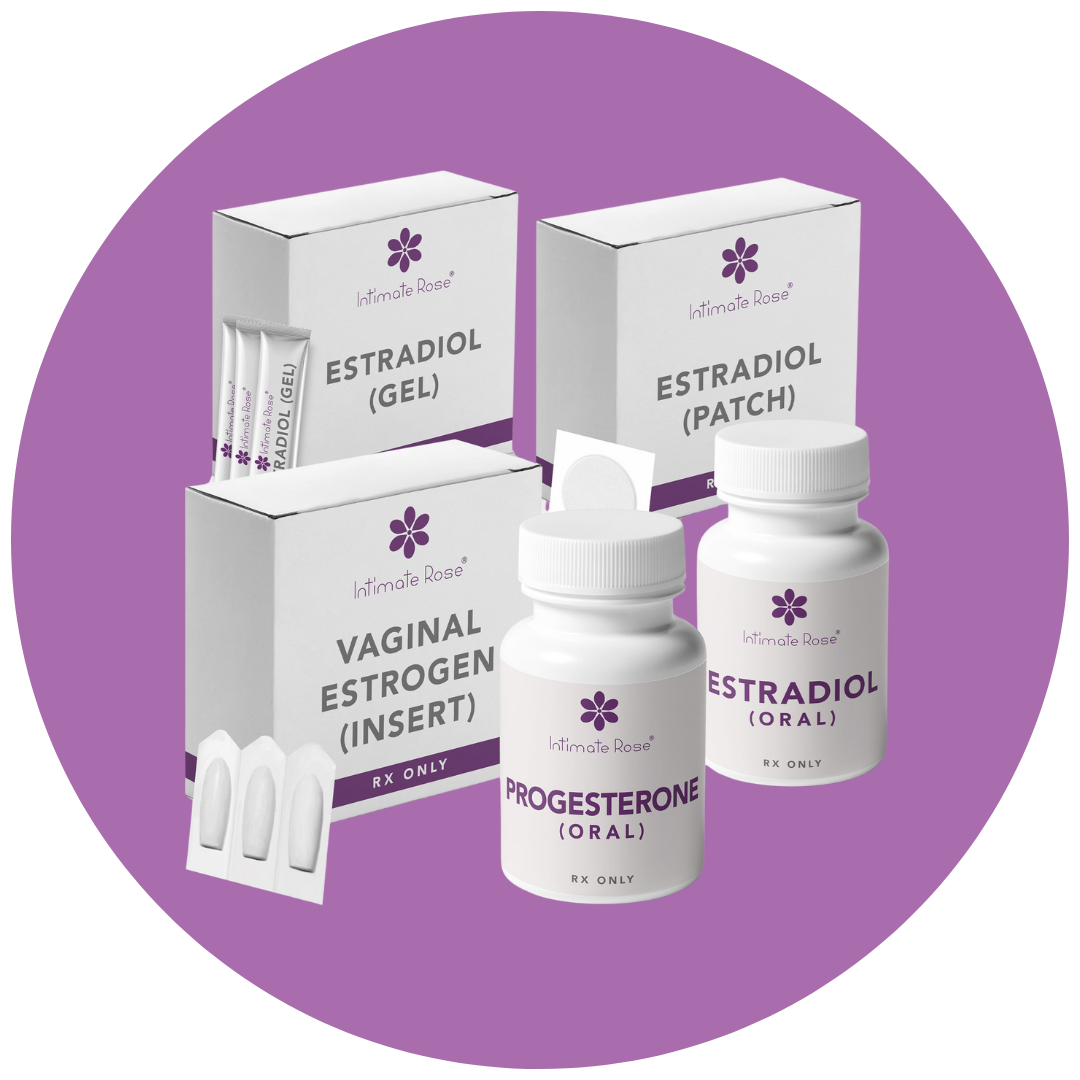
Phytoestrogens
Phytoestrogens are derived from plants instead of the synthetically produced hormones used from animals in HT. When taken as a supplement, phytoestrogens have been proven to ease several menopause symptoms, including hair loss, without any of the side effects of HT.
Rather than re-introducing estrogen when it is naturally declining during perimenopause and menopause, phytoestrogens bind to estrogen receptors to mimic the effects of estrogen and the body responds as if it is present.
By regulating hormone imbalances in this natural way, phytoestrogens lower the effects of androgens during menopause and result in less hair loss. They also increase the number of hairs in the hair follicles of women suffering from hair loss and prevent further hair thinning.
Phytoestrogens also relieve several other symptoms of menopause including; mood swings, hot flashes, insomnia, dry skin, acne, low libido, vaginal dryness, bone density loss, and heart palpitations.
How Do You Take Phytoestrogens for Menopause?
Naturally found in apples, pears, plums, cabbage, sprouts, spinach, and grains, most people randomly consume daily phytoestrogens without even realizing it. To treat menopause symptoms and hormone fluctuations, however, a regular intake of phytoestrogens via a daily supplement is recommended.
Intimate Rose produces one of the most potent phytoestrogen supplements on the market for treating both PMS and menopause symptoms. Containing 1,000 mg of pure Vitex-agnus-castus from the Chasteberry tree, these popular phytoestrogen supplements are organically produced, non-GMO, vegan, and according to many happy customers, they safely ease the symptoms of menopause.
Additional Help for Menopausal Hair Loss
Whether you are experiencing temporary or permanent hair loss due to menopause, the following will also help in conjunction with hormone therapy or the more natural method of balancing hormones with phytoestrogens:
Be Gentle with Your Hair
Avoid harsh hair treatments like bleaching and heat styling, and speak with a dermatologist or a hair growth specialist about nourishing hair products that contain ingredients like biotin.
Eat a Nutritious Diet
Speak with a nutritionist to ensure you consume a nutrient-rich diet that supports your overall health including hair growth and healthy hair follicles. Vitamin C, group B & A vitamins, as well as minerals like calcium (Ca), copper (Cu), iron (Fe), magnesium (Mg), and zinc (Zn), are essential for hair health but often low in menopausal women.
Manage Stress
Balancing life, work, and family can already be challenging enough for women without the added stress of dealing with menopause symptoms. Stress often contributes to hair loss, so it’s helpful to create a daily routine that lowers stress levels such as; yoga, meditation, conscious breathing, walking, hiking, or listening to relaxing music.
Change of Hairstyles
It can help to experiment with new hairstyles that create volume and hide obvious hair thinning on the scalp, crown, or temples.
Finding Acceptance
Accepting menopausal changes rather than mourning the loss of your younger self can be incredibly freeing. Youth and thick hair don’t last forever but your mental health and wellbeing don’t need to go with them.
Wigs & Hairpieces
Modern-day wigs and hairpieces are now regularly used to alter hairstyles or give the appearance of thicker hair. If hair loss affects your self-esteem, take the lead from your favorite celebrity and invest in some hair pieces or wigs.

Get your personalized HRT plan!

Get your personalized HRT plan!
Conclusion
Shrinking hair follicles, finer hair, increased hair loss, and changes in how the hair feels are common in over 50% of women during perimenopause and menopause. Typically caused by hormone changes, genetics, and stress are also known to play a role in hair loss during menopause.
If you notice a wider parting line, or thinning hair on the crown or by the temples, speak with a hair growth specialist, menopause expert, nutritionist, or dermatologist for evaluation and treatment options. It’s also worth asking them about using phytoestrogens to reduce menopause symptoms, like hair loss, to avoid the risks of hormone therapy.
References
North American Menopause Society - Prevalence of female pattern hair loss in postmenopausal women: a cross-sectional study - - https://journals.lww.com/menopausejournal/abstract/2022/04000/prevalence_of_female_pattern_hair_loss_in.7.aspx
Science Direct – Estrogen’s Effects on the Female Body - https://www.hopkinsmedicine.org/health/conditions-and-diseases/estrogens-effects-on-the-female-body
National Center for Biotechnology Information – Progesterone - http://www.ncbi.nlm.nih.gov/books/NBK558960/
National Library of Medicine - The Menopausal Transition: Is the Hair Follicle “Going through Menopause”? https://www.ncbi.nlm.nih.gov/pmc/articles/PMC10669803/
Cleveland Clinic - Female Pattern Baldness - https://my.clevelandclinic.org/health/diseases/24943-female-pattern-baldness
British Association of Dermatologists - Telegon Effluivium - https://www.bad.org.uk/pils/telogen-effluvium/
National Library of Medicine - Blackcurrant Extract with Phytoestrogen Activity Alleviates Hair Loss in Ovariectomized Rats - https://www.ncbi.nlm.nih.gov/pmc/articles/PMC6479596/
National Library of Medicine - Efficacy of phytoestrogens for menopausal symptoms: a meta-analysis and systematic review - https://www.ncbi.nlm.nih.gov/pmc/articles/PMC4389700/
National Center for Biotechnology Information - Nutrition of women with hair loss problem during the period of menopause - https://www.ncbi.nlm.nih.gov/pmc/articles/PMC4828511/

Get your personalized HRT plan!




